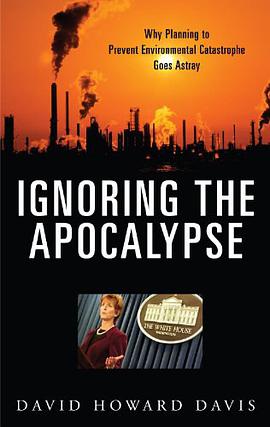

Article Type: Guest editorial From: foresight, Volume 11, Issue 4
In assessing the practice of foresight as generally applied within government, industry, and the non-governmental sector, an important gap quickly becomes apparent: poverty is rarely included as an explicit issue for consideration. While foresight exercises typically take into account the impact of long-term political, economic, social, and technological trends, the differential implications of these factors for the lives of the poor tend not to be substantively addressed. Historically, foresight has been used by a range of global stakeholders, including policy makers, corporations, and local communities, to better anticipate future challenges and to identify risks, opportunities and new solutions to complex problems. Adopting an approach to foresight that clearly and unambiguously addresses issues related to poverty has been lacking, however. As more people begin to realize that the poor will be disproportionately affected by the myriad and intractable problems of the 21st century, the need to incorporate foresight with issues related to poverty becomes more pressing. Unfortunately, this lack of foresight focused on poverty, from both the global South and the global North, has either allowed these issues to remain problematic or, even worse, has contributed to their severity.
This central concern – that the application of foresight for envisioning the future of human development is no longer a luxury, but rather, a necessity, in order to achieve large-scale societal change – was the guiding and motivating force behind a workshop organized by the Institute for Alternative Futures (IAF), with support from the Rockefeller Foundation. The workshop, entitled “Foresight for Smart Globalization: Accelerating and Enhancing Pro-Poor Development Opportunities”, was held from March 16-20, 2009 at the Rockefeller Foundation’s conference facilities in Bellagio, Italy. It was co-chaired by Leon Fuerth, Founder and Director of the Project on Forward Engagement; Research Professor at the George Washington University; and former National Security Adviser to Vice President Al Gore, and David Jhirad, Special Advisor for Energy and Climate Change at the Rockefeller Foundation. By convening a group of high-level experts to explore opportunities for implementing foresight focused on pro-poor solutions in the global South, the workshop aimed to achieve a number of goals: to highlight the rationale and practice of pro-poor foresight in accelerating and enhancing “smart globalization,” defined as harnessing the benefits of globalization to benefit poor and vulnerable people; to gain a better understanding of foresight in relation to a set of key issues that are relevant to the global South; and to convene and create network-building opportunities for a burgeoning community of practitioners concerned with advancing foresight for development. The workshop participants came from a diverse set of geographic and disciplinary backgrounds, as they mixed experience and expertise in both foresight and knowledge-specific areas, ranging from energy, climate change, science and technology, and economic governance to scenario building, forecasting, trend monitoring, and policy analysis. The workshop participants were taken through a process to identify opportunities for pro-poor foresight (see Figure 1).
Figure 1 Workshop process: Identifying opportunities for pro-poor foresight, which has the potential to transform the field
Research conducted in preparation for the workshop indicated that there are a growing number of organizations in the global South conducting foresight activities and that there have been a number of foresight exercises conducted in the developed world that take an explicit interest in anticipating how long-term trends will affect the poor as well as how the complexities of globalization will shape the future of development. For example, in East Africa, the East Africa Scenarios Project of the Society for International Development has produced scenarios and trend analysis reports tracing alternative futures as the region moves toward economic integration (Eyakuze et al., 2008). Country level scenario studies for Uganda (Society for International Development, 2005), Tanzania (Society for International Development, 2004), and – in collaboration with the Institute of Economic Affairs – Kenya (Institute for Economic Affairs and Society for International Development, 2000; Institute for Economic Affairs, 2009) present more fine-grained assessments about how poverty-related factors may lead the future of these countries to evolve in different directions. In West Africa, the Africa Leadership Institute and LEAP Africa have coordinated a set of scenarios about the future of political and social development in Nigeria (Africa Leadership Institute and LEAP Africa, 2008), and, in Southern Africa, the South Africa Node of the Millennium Project has produced a State of the Future Index to illustrate the factors that will likely contribute to South Africa’s evolution over the coming decades (Karuri-Sebina et al., 2008). In India, the Strategic Foresight Group has produced a series of trend scans that identifying major issues that will “influence global security and economy in the next decade” (Futehally, 2008), along with a set of “cost of conflict” analyses that detail the multiple tradeoffs of continued conflict in the Middle East, Sri Lanka, as well as in India and Pakistan (Strategic Foresight Group, 2009).
In Asia, the APEC Center for Technology Assessment, headquartered in Thailand, has conducted a series of regionally-focused projects related to the future of new areas of science and technology. It has contributed to the field by organizing foresight training courses for participants from a range of Southeast Asian countries (APEC Center for Technology Foresight, 2009). The Singapore government’s Risk Assessment and Horizon Scanning Group also conducts foresight work by taking a broad view in understanding how global forces will shape the future of that country and the region as a whole (Risk Assessment and Horizon Scanning, 2009). In Europe, the United Kingdom’s Foresight Programme has undertaken a variety of foresight activities with global implications, including the future of food and farming, transportation, and sustainable energy (Foresight Programme, 2009). The World Economic Forum, based in Switzerland, has assembled a group of experts to form a Global Agenda Council on Strategic Foresight and has recently produced a set of scenarios assessing the short- and long-term future of the global financial system (World Economic Forum, 2009). Finally, in the United States, the National Intelligence Council released its latest analysis of long-term political and economic trends in Global Trends 2025: A Transformed World (National Intelligence Council, 2008), and non-governmental organizations like the RAND Pardee Center for Longer Range Global Policy and the Future Human Condition have begun to identify how long-term decision making can be applied to a variety of pressing international policy areas, such as climate change, education, and energy (RAND Pardee Center, 2009).
This diversity of foresight-related activities, from all corners of the world, indicates that the adoption of a pro-poor conceptualization of foresight has the potential to transform the field and open new directions for the application of foresight in different contexts, cultures, and communities. The participants at the Bellagio workshop took a first step in this direction by beginning to define what “pro-poor foresight” means. This is admittedly a challenging and difficult undertaking. For the workshop, pro-poor foresight was initially defined as forward-looking analysis that focuses on poor and marginalized people by expanding their social and economic opportunities; enhancing the social, economic and ecological resilience of human society, with special attention to the rural and urban poor; and strengthening the poor’s capacity for anticipatory governance to address global and regional trends, forecasts, shocks, and disasters. Starting with this understanding of what pro-poor foresight encapsulates, the participants engaged in series of high-level discussions that generated thoughtful ideas about how foresight can be used to improve the lives of the poor and illuminated common barriers to improving long-term decision making across many local, regional, and national contexts. Examples of these suggestions include implementing community level processes designed to integrate the voices of the poor in policy making and resource allocation, training for key government decision makers about how to think and plan for the long-term, and instituting periodic, national foresight exercises to foster a more collective understanding of how the future might unfold (see Figure 2).
Figure 2 The workshop participants discussed how to use a multi-scalar approach to foresight to create a multi-scalar understanding of both problems and opportunities
The workshop was also valuable in highlighting the various benefits of adopting a forward-looking, long-term view related to poverty and development issues. First, it was generally agreed that foresight can serve a silo-busting tool which can help individuals adopt a systematic view of interrelated global challenges. Second, foresight processes such as scenario building and trend analysis, can provide policy makers from both developed and developing countries with a valuable space to rehearse and test decisions which address deep uncertainties. These simulations can help decision makers to avoid costly mistakes in the real world and serve as a way to help societies prepare for, and anticipate multiple, alternative futures. Third, foresight provides a structured way for articulating and understanding the complexity of systems through various methods, such as storytelling and collaborative learning, that can release creativity, lead to paradigm shifts, and identify new forms of action. Finally, the participants agreed that while the products of foresight – such as scenarios, written reports, and forecasts – can be useful in communicating ideas to a broad group of stakeholders, there is equal value in viewing foresight as a process that constantly trains individuals to welcome complexity, think in an integrative manner, and become adept at developing hedging strategies for the future.
The articles that constitute this special issue served as background papers for the workshop and helped to inform the discussions which took place in Italy. These papers have been edited and updated based upon the conversations at the workshop and peer review. The first article, “Foresight for smart globalization”, by David Jhirad, Claudia Juech, and Evan Michelson, describes the Rockefeller Foundation’s notion of “smart globalization” and details the interlocking, global issues that lay at the core of the Foundation’s work. The second article, “Foresight and anticipatory governance”, by Leon Fuerth, presents an overview of foresight in terms of a systems thinking and introduces the notions of “forward engagement” and “anticipatory governance” as key components that relate the application of foresight to government practice. These ideas functioned as the basis of Fuerth’s keynote speech at the workshop. His speech stressed that the irreducible complexity of the global challenges facing society require that decision makers continually contemplate alternative options and pathways. In order to do this, decision makers must regularly imagine different futures, test various solution sets as well as review and calculate the impact and consequences of their actions.
The next three, topic-focused articles are meant to act as interlocking pieces that address forward-looking opportunities to advance pro-poor solutions in the areas of energy and climate change, science and technology, and economic governance. In “Looking ahead: energy, climate and pro-poor responses”, Teresa Malyshev discusses how different global energy demand scenarios might impact a range of factors, including poverty levels, greenhouse gas emissions, health effects, urbanization, and transportation. Malyshev also considers the impact of climate change on the energy sector and what forward-looking, pro-poor solutions are needed to achieve long-term improvements in developing clean energy and climate change mitigation and adaptation. In “The future of science & technology and pro-poor applications”, Nares Damrongchai and Evan Michelson survey existing foresight literature in the field and assesses the possible cross-cutting implications for science and technology that could have significant impacts on poverty. This article also lays out the opportunities and barriers associated with applying science and technology for pro-poor purposes. In “Prospects for economic governance: pro-poor resilient growth”, William Lyakurwa emphasizes the dynamic links between improved economic governance in Africa and a multitude of topics, including conflict, democracy, the Diaspora, social empowerment, and the role of the private sector. It then proceeds to suggest how economic governance can achieve a more equitable future through sustainable pro-poor growth, advanced human capacity, more effective aid, and the transformation of key aspects of Africa’s continent-wide economy, such as agriculture and trade.
The “foresight for smart globalization” component of this special issue concludes with a synthesis statement that resulted from the workshop, along with a selection of recommendations and key next steps. This statement and recommendation list was developed collaboratively by the entire group of participants, and it illustrates a general convergence of thought around a series of key issues. Some of these include the inextricable connection between foresight and poverty, the need to integrate an understanding of complexity and uncertainty in decision making, and a renewed sense of collective action from thinking about the future of development. The full results of the workshop, along with a final synthesis statement, will be published in the upcoming workshop report. On a final note, we would be remiss if we did not extend our sincerest thanks in to the workshop co-chairs and participants for their central role in advancing the concept of pro-poor forward and for creating an open, stimulating, and engaging environment for deliberation, discussion, and debate. We also acknowledge and thank Kati Wilkins for her invaluable work in the development of the workshop, the meeting papers, and this special issue of foresight. We hope that the ideas presented in this special issue will serve as a first step in opening a new direction for foresight, one that makes addressing issues of poverty a central and ultimate concern. More details on the workshop, including the final report will be available at www.altfutures.com.
All drawings in this special issue on pro-poor foresight were produced by Joseph Ravetz, a graphic facilitator, foresight practitioner,and professor at the University of Manchester, who recorded and visualized, in real-time, the ideas that emerged over the course of the workshop.
References
Africa Leadership Institute and LEAP Africa (2008), Nigeria 2025 Scenarios, Africa Leadership Institute and LEAP Africa, available at: www.nigeria2025scenarios.com/ (accessed May 4, 2009)
APEC Center for Technology Foresight (2009), APEC Center for Technology Foresight, Bangkok, available at: www.nstda.or.th/apectf/ (accessed May 4, 2009)
Eyakuze, A., Okello, D. and Muliro, A. (2008), What Do We Want? What We Will Become? Imagining the Future of East Africa, The Society for International Development, Nairobi, available at: www.sidint.org/PUBLICATIONS/179.pdf (accessed May 4, 2009)
Foresight Programme (2009), Foresight Programme, London, available at: www.foresight.gov.uk/index.asp (accessed May 4, 2009)
Futehally, I. (2008), Global Security and Economy: Emerging Issues Report, Strategic Foresight Group, Mumbai
Institute for Economic Affairs (2009), Institute for Economic Affairs, Nairobi, available at: www.ieakenya.or.ke/subsection.asp?ID=9 (accessed May 4, 2009)
Institute for Economic Affairs and Society for International Development (2000), Kenya at the Crossroads, Institute for Economic Affairs and Society for International Development, Nairobi, available at: www.kenyascenarios.org/ (accessed May 4, 2009)
Karuri-Sebina, G., Hemson, D., Munthree, C. and O’Donovan, M. (2008), “Future of South Africa State of the Future Index SA-SOFI”, working paper, Human Science Research Council, Pretoria, April 8, available at: www.hsrc.ac.za/research/output/outputDocuments/5372_Karuri_FutureofSAStateofthefutureindex.pdf (accessed May 4, 2009)
National Intelligence Council (2008), Global Trends 2025: A Transformed World, Government Printing Office, Washington, DC, available at: www.dni.gov/nic/PDF_2025/2025_Global_Trends_Final_Report.pdf (accessed May 4, 2009)
RAND Pardee Center (2009), RAND Frederick S. Pardee Center for Longer Range Global Policy and the Future Human Condition, Santa Monica, CA, available at: www.rand.org/international_programs/pardee/ (accessed May 4, 2009)
Risk Assessment and Horizon Scanning (2009), Risk Assessment and Horizon Scanning, Singapore, available at: http://rahs.org.sg/t2_home.html (accessed May 4, 2009)
Society for International Development (2004), TUTAFIKA: Imagining our Future – Tanzania, Society for International Development, Nairobi, available at: www.tutafika.org/ (accessed May 4, 2009)
Society for International Development (2005), The Story of Uganda, Society for International Development, Nairobi, available at: www.scenarios.ws/uganda/ (accessed May 4, 2009)
Strategic Foresight Group (2009), Publications and Research, Strategic Foresight Group, Mumbai, available at: www.strategicforesight.com/publications_research.htm (accessed May 4, 2009)
World Economic Forum (2009), The Future of the Global Financial System: A Near-Term Outlook and Long-Term Scenarios, World Economic Forum, Geneva, available at: http://www.weforum.org/pdf/scenarios/TheFutureoftheGlobalFinancialSystem.pdf (accessed May 4, 2009)
Clement Bezold, Claudia Juech, Evan S. Michelson
About the authors
Clement Bezold, PhD,
Chairman of the Board and Co-Founder of the Institute for Alternative Futures (IAF). Bezold established IAF with Alvin Toffler and James Dator in 1977 to encourage “anticipatory democracy” and foresight. Trained as a political scientist, he has been a major developer of foresight techniques, including IAF’s unique “aspirational futures” approach, which uses scenarios to help clients not only to better understand what might happen (the plausible future) but to create the future they prefer/their vision (the preferred future). Clement (Clem) Bezold is the author or co-author of a number of reports on the future of cyber-democracy, food and nutrition, genomics, health and health care, transportation, the legal system, forests, and natural resources and sustainability. His book The Future of Work and Health (co-authored with Rick Carlson and Jonathan Peck) received American Health magazine’s book award. He is on the editorial advisory board of foresight, Technology Forecasting and Social Change, World Futures Review, and the Journal of Futures Research. Clement Bezold is the corresponding author and can be contacted at: cbezold@altfutures.com
Claudia Juech
Managing Director, Research at the Rockefeller Foundation, New York, NY. As a Managing Director, she provides leadership and direction for the development and application of research concepts and tools for the Foundation. She is also tasked with leading efforts to identify and analyze global trends and issues as they relate to current initiative work and opportunities for programmatic investment. Prior to joining the Rockefeller Foundation, Ms Juech managed Deutsche Bank Research’s InfoCenter where she aggregated business, trend and competitive information for Deutsche’s European staff. Reporting to Deutsche Bank Group’s chief economist, she designed and implemented international information solutions, including the first globally available Knowledge database on European Currency issues at Deutsche Bank. From 2005 to 2007, she chaired the Association of Information Centers in the Financial Industry in German speaking Europe. Ms Juech has a degree in Information Science from the University of Applied Sciences Cologne and an International Master of Business Administration from the University of Cologne.
Evan S. Michelson
Senior Research Associate at the Rockefeller Foundation, New York, NY. Previously, he served as a Research Associate for the Project on Emerging Nanotechnologies at the Woodrow Wilson International Center for Scholars in Washington, DC. Michelson received a MA in international science and technology policy from The George Washington University, a MA in philosophical foundations of physics from Columbia University, and a BA in philosophy of science from Brown University. He has worked as a visiting researcher in the Korea Science and Engineering Foundation as part of the National Science Foundation’s East Asia and Pacific Summer Institute program and as a science outreach instructor in Columbia University’s Physics Emasondosondo project in South Africa. He has published articles and book chapters in several journals and collections, including Science and Public Policy, Journal of Industrial Ecology, Ecotoxicology, Bulletin of Science, Technology & Society, Journal of Technology Studies, Ethics and Infectious Disease, Nanotechnology and Society, Nanotechnology Applications for Clean Water, and Converging Technologies for Human Progress.
具體描述
讀後感
評分
評分
評分
評分
用戶評價
相關圖書
本站所有內容均為互聯網搜索引擎提供的公開搜索信息,本站不存儲任何數據與內容,任何內容與數據均與本站無關,如有需要請聯繫相關搜索引擎包括但不限於百度,google,bing,sogou 等
© 2025 qciss.net All Rights Reserved. 小哈圖書下載中心 版权所有




















